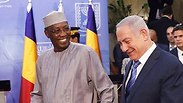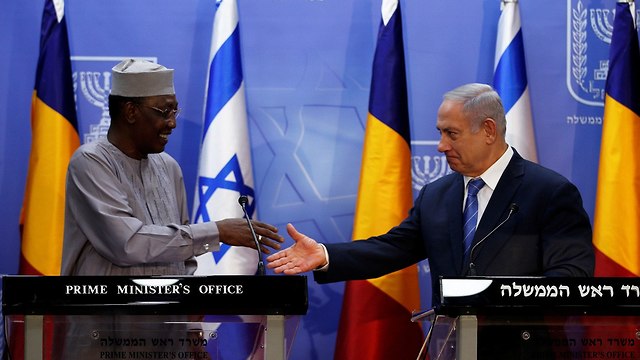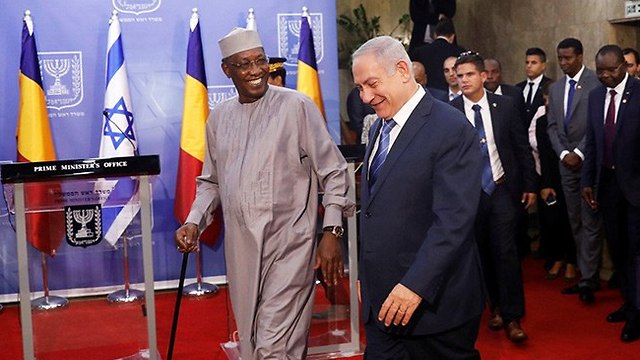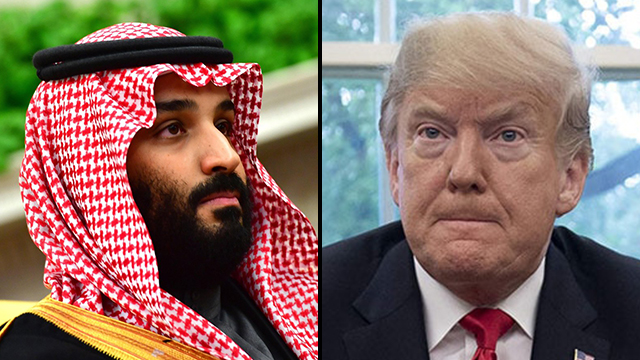

Israel's ties with the Arab world are nothing to get excited over
Op-ed: The Jewish State must overcome its childish desire for approval from Arab or Muslim countries; what does Israel have to benefit from photo-ops with dubious Muslim rulers? It's unclear. And yet, Israeli leaders are willing to pay a steep price for that, even though it's not really worth it.
One of the most basic qualities in the Israeli DNA is the yearning—at times moving and at times slightly pathetic—for recognition, legitimization, and acceptance in the Muslim and Arab world. For a photo op with a Muslim or Arab leader, left- and right-wing Israeli leaders are ready to pay a heavy price, and sometimes it is really not worth it.
Israel is a small isolated island in a hostile and violent environment. Therefore, it would be wise for the Jewish State to build bridges where it can, form alliances, and do everything in its power to normalize its ties with the Arab world.
Over the past few years, progress had been noted on that front, thanks to the combination of several circumstances: the dissolvement of some of the countries in the Middle East, some countries' desire to join forces with the "neighborhood's bully" to create a counterweight to Iran, the Palestinians failing in promoting their agenda, forming an opposition to the Obama administration at the time, and now using Israel to get an "in" with the White House.
But we have to stay realistic about our new friends. Chadian President Idriss Deby's visit to Israel is "historic" since this is the first time he arrives to the Jewish State. Apart from that, there is not a lot to be impressed by. Full diplomatic relations will not be established for now, and economic relations already exist.
Israel will continue selling weapons to Deby—another African ruler with a pretty dubious record of human rights violations—only now he has so kindly agreed to arrive in Jerusalem, visit the Yad Vashem Holocaust Memorial Museum, and take a picture with Prime Minister Benjamin Netanyahu.
It is safe to assume that the African leader has come to the conclusion that the photo op with the premier would benefit him—he needs international economic aid and any other support he can get from Washington—no less than it would benefit Netanyahu, who wants to display political momentum before the general elections next year.
Even the Palestinian reacted in rather a feeble manner. The normalization of Israel's relations with far more important Arab countries is what's bothering the Palestinians, but they are quite helpless to stop that as well.
The more significant diplomatic ties are with countries such as Bahrain, the United Arab Emirates and of course Saudi Arabia. Here, too, Israel appears to be seeking to make these relations public, while it's not at all certain the Arab nations want that.
The Iron Dome system that Israel gave Saudi Crown Prince Mohammed Bin Salman, who is embroiled with the killing of journalist Jamal Khashoggi, helped him a lot, but it caused significant damage to Israel's image, especially in the liberal media.
What do we get from having the name "Israel" come up in relation to a regime that kills opposition journalists? What in it for us when US President Donald Trump uses Israel's secret ties with Saudi Arabia to legitimize his own tolerant attitude towards Bin Salman's actions, tolerance which stems from completely different considerations? It's unclear.
Let's hope that Mohammad Bin Salman remembers what Israel did for him better than Egyptian President Abdel Fattah al-Sisi, for whom Netanyahu also did a lot in Washington, and who after several years of toeing the line with regards to Hamas has gone back to embracing the terror organization, much like former president Hosni Mubarak.
Israel is a strong country, which has a lot to contribute to the world and the countries in the region in the fields of technology, medicine, agriculture, and of course advanced weapons and intelligence systems. The last thing it needs from these countries—most of whom have dubious regimes—is legitimization.
In fact, it is difficult to see how photo-ops of an Israeli leader with a controversial ruler could benefit the Jewish State, apart from the political benefits on election night. Because the Israelis, as already mentioned, are yet to overcome their childish desire for an Arab or Muslim embrace.


















